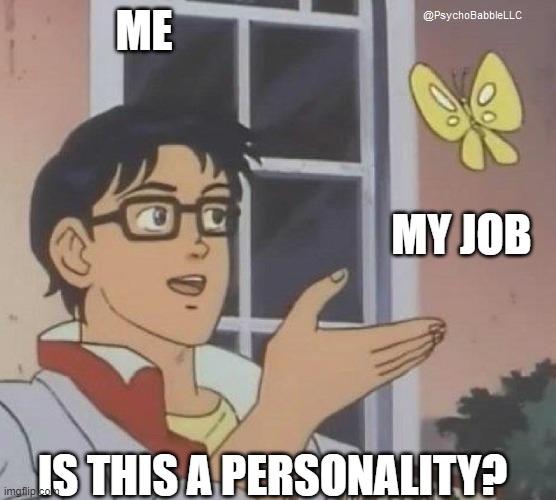
Our identities, which develop over adolescence and into adulthood, can be quite complex. To illustrate this to students, I ask them to write down the factors of their identities that seem to have played a key role in shaping how students see themselves. Responses tend to fall into certain categories:
Race
Gender and sexual expression
Nationality
Family role
Activities (e.g., sports or music)
Religion
Socio-economic status
Culture
Ability or Disability Status
Key life experiences
For some of us, our professions may be a large part of our identities – by virtue of the fact that we spend so much time and effort either performing at or thinking about our workplaces, why shouldn’t they be? But, for some, one’s job is THE MOST important part of their identity. I am a doctor! I am a lawyer! I am a social worker! This phenomenon may be explained if the job is someone’s “passion” or “mission.” But, is this a health-promoting way of thinking?
A big problem here is that most jobs don’t last forever. Data collected in 2020 suggest that the average stay at any job is about 4 years. Let’s say your job is a big part of your identity, but you suddenly are laid off due to situations beyond your control? Let’s say your job is becoming abusive, toxic, or exploitative, so you decide to leave? Or, worse, your job is abusive, toxic, or exploitative and you DON’T leave because it would mean losing a core part of your identity.
I received advice from a Gen-X friend a few years back: “your employers never care about you as much you care about your job.” There may be exceptions, but from years of experience I can see plainly that the moment you stop being profitable to your organization, you are of no more use to them. In fact, in some states, it is legal for an employer to fire an employee for no specific reason at all. It doesn’t even matter how long you’ve been at your organization; some of the older adults I know are being squeezed out of their jobs at a time when it may be really difficult for them to find new work. No matter how much of your identity is wrapped up in your profession, the organization you work for doesn’t particularly care about you once you walk out the door, and they’d be happy to show you there.
Then there’s the fact that we continue to grow and change throughout our lives. What if we just don’t want to DO our jobs anymore? Maybe we take some time off to focus on a passion project, or start a career in another direction. Our identities will change alongside. Are you the same that you were at age 18 when you chose a major in school? Were you the same 5 years ago? 10? 20? That kind of change and growth might be reflected in the work-related decisions we make.
This was a hard lesson for me to learn, but an important one. It may be particularly important for those seeking a helping profession (i.e. nursing, caring for youth, caring for older adults). The fact that helpers are passionate about their work leaves them open for serious exploitation. For transitional youth who are going out into the world of work, pay attention to how you are treated, and don’t give your everything to your job. You are much, much more than an employee at a company. You are a whole ass person.
Suggested reading: A Profession is not a Personality (The Atlantic)
